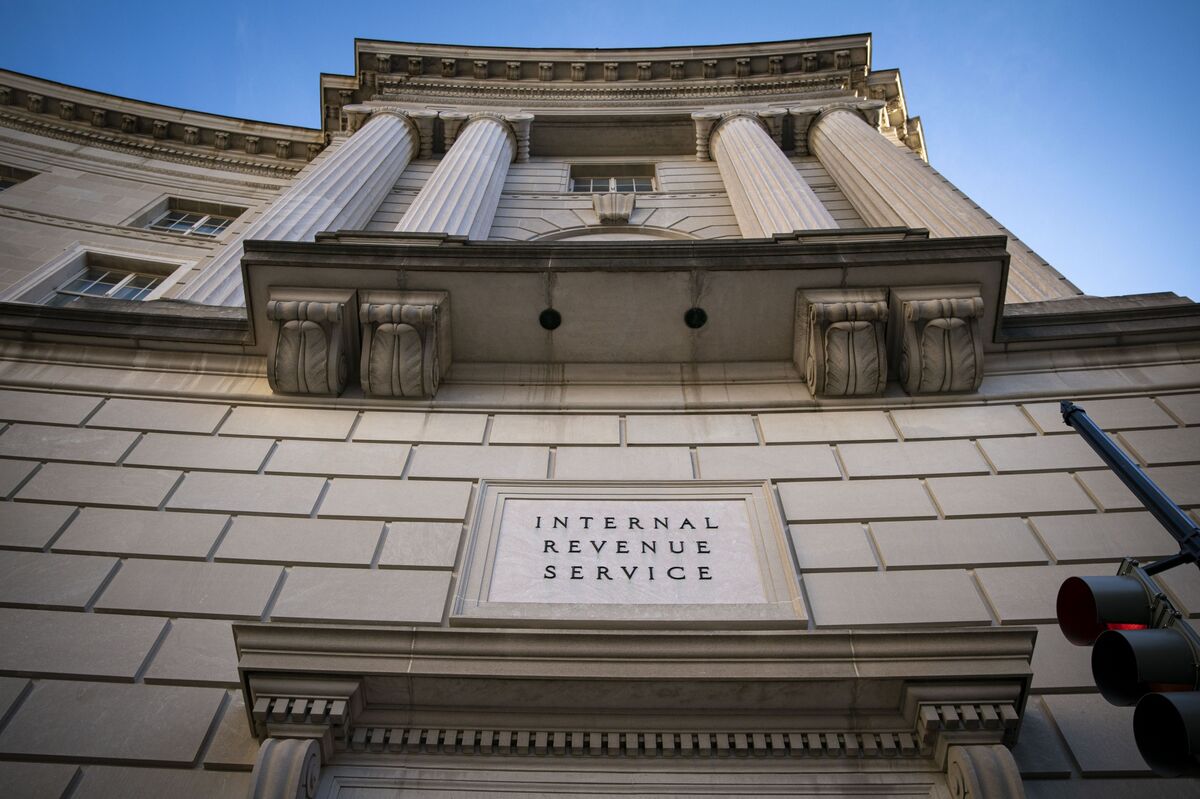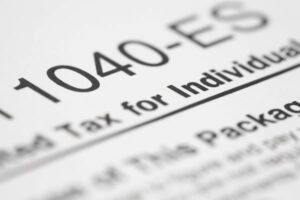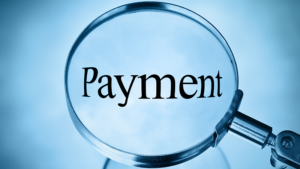IRS More Than Doubles Interest Rate (Penalty) on Estimated Tax Underpayments Over 2021 Rate

 While inflation will have a positive impact on your 2024 retirement contribution limits, and possibly your income tax bracket (watch for our posts on these topics in the coming weeks), there’s one inflationary factor pertinent to income taxes that’s a pure negative for those who didn’t make sufficient estimated quarterly income tax payments, as well as those who have under-withheld their tax payments via their employers.
While inflation will have a positive impact on your 2024 retirement contribution limits, and possibly your income tax bracket (watch for our posts on these topics in the coming weeks), there’s one inflationary factor pertinent to income taxes that’s a pure negative for those who didn’t make sufficient estimated quarterly income tax payments, as well as those who have under-withheld their tax payments via their employers.
A Pay-As-You-Go (or Pay-As-You-Earn) System
 In the United States, taxpayers are required to pay taxes during the year as they earn and receive income.
In the United States, taxpayers are required to pay taxes during the year as they earn and receive income.
- If you work for an employer, your salary or wages are taxed according to the W-4 you file with your employer annually. If you receive bonuses or commissions, you may want to recalculate and file a new W-4 during the year, to ensure you are not underpaying your tax liabilities.
- If you are self-employed, or have income not subject to withholding, such as interest, dividends, and/or capital gains, you may be required to file estimated quarterly tax payments to avoid being assessed interest (or a penalty) on the amount you underpaid for the quarter.
What is the “Penalty,” Really?
 The underpayment penalty for estimated taxes is, in actuality, interest charged on tax underpayments in a given quarter. The rate at which this “penalty” is calculated is equal to the federal short-term interest rate plus 3%, and is recalculated by the Internal Revenue Service (IRS) each quarter. The IRS calls this assessed interest a penalty, despite it being calculated as interest.
The underpayment penalty for estimated taxes is, in actuality, interest charged on tax underpayments in a given quarter. The rate at which this “penalty” is calculated is equal to the federal short-term interest rate plus 3%, and is recalculated by the Internal Revenue Service (IRS) each quarter. The IRS calls this assessed interest a penalty, despite it being calculated as interest.
Rising Interest Rates Impact Everything
 And this includes the interest rate (penalty) assessed for underestimating your total annual federal income tax liabilities when paying your income taxes, whether via employers’ tax withholding or quarterly estimated tax payments. This penalty is assessed on the amount by which you underestimated/underpaid your federal income tax liability for the quarter in question:
And this includes the interest rate (penalty) assessed for underestimating your total annual federal income tax liabilities when paying your income taxes, whether via employers’ tax withholding or quarterly estimated tax payments. This penalty is assessed on the amount by which you underestimated/underpaid your federal income tax liability for the quarter in question:
- For 2021, the rate, which is based upon the federal short-term interest rate plus 3%, stood at 3%, as it had since the second quarter of 2020.
- During 2022, the rate for the first quarter remained 3%. However, the rate increased by 1% each quarter thereafter for the year, ending at 6% for the fourth quarter of 2022.
- For 2023, the rate rose in the first quarter to 7%, and for the fourth quarter, the rate is 8%. The last time the interest rate (penalty) for underpayment of federal income taxes was this high, the period in question covered the third quarter of 2006 through the fourth quarter of 2007.
- For fiscal year 2022, the IRS assessed over $1.8 billion in penalties for estimates tax underpayments on ~12.2 million individual income tax returns.
- The estimated income tax payment for the fourth quarter of 2023 is due on Tuesday, January 16, 2024 (Monday, January 15, is a federal holiday, celebrating Martin Luther King, Jr.’s birthday).
How to Avoid IRS-Assessed Interest on Underpayment of Your Income Taxes
 The best way to ensure you aren’t assessed interest (penalty) for underpayment is – don’t underpay! Of course, that’s easy to say, and harder to ensure, especially if your income fluctuates over the year. We recommend you seek the guidance of your CPA, and provide him/her with all relevant data, including paystubs, cash receipts, investment account statements, etc.
The best way to ensure you aren’t assessed interest (penalty) for underpayment is – don’t underpay! Of course, that’s easy to say, and harder to ensure, especially if your income fluctuates over the year. We recommend you seek the guidance of your CPA, and provide him/her with all relevant data, including paystubs, cash receipts, investment account statements, etc.
However, there are a couple of methods which simplify paying your estimated taxes, also known as “safe harbor” provisions. If:
- Your final individual income tax return shows taxes due of less than $1,000,
- You paid the lesser of 90% of the income tax liability for the current year, or 100% of the income tax liability for the prior year, or
- You are a high-income individual, earning an adjusted gross income (AGI) of $150,000, or $75,000 for married taxpayers filing jointly, and paid 110% of the income tax liability for the preceding tax year,
You may not be liable for an income tax underpayment penalty.
Can an Assessed Interest (Penalty) on Underpayment of Income Taxes be Removed or Reduced?
 Under certain circumstances, the answer may be “yes.” There are certain circumstances which the IRS recognizes as potentially or actually beyond a taxpayer’s control, which may make it difficult to meet estimated income tax payment obligations in a timely manner. In such cases, the IRS may reduce or rescind the assessed penalty. Some of these circumstances include:
Under certain circumstances, the answer may be “yes.” There are certain circumstances which the IRS recognizes as potentially or actually beyond a taxpayer’s control, which may make it difficult to meet estimated income tax payment obligations in a timely manner. In such cases, the IRS may reduce or rescind the assessed penalty. Some of these circumstances include:
- If you (or your spouse, if you file jointly), retired during the prior two years and had reached the age of 62, and had reasonable cause (such as the serious illness or death of an immediate family member, or other unforeseen situation) to underpay your estimated taxes, or to pay estimated taxes late (such as , you may be eligible for penalty relief.
- If you had most of your income tax withheld early in the year, rather than spreading it out equally, a quarterly interest assessment (penalty) for underpayment of estimated tax may qualify for relief.
- If the underpayment resulted from a casualty (such as your home being damaged by fire), a local natural disaster, or other unusual circumstance under which the imposition of interest on the underpayment of income tax (penalty) would be considered unfair (by the IRS, or as specified under specific official authorization(s) to provide such relief).
Final Thoughts
 Again, we strongly urge you to seek the guidance of your CPA. S/he can help you most accurately determine your estimated income tax liabilities and provide estimated payment amounts. If your income derives from multiple sources, and especially if it comes from various different types of income (e.g., salary or wage earnings, income from outside your employer-paid salary or wages, and/or investment transactions whereby capital gains or losses are realized), your CPA can help you navigate the various tax withholdings, estimated tax payments due, and liabilities involved.
Again, we strongly urge you to seek the guidance of your CPA. S/he can help you most accurately determine your estimated income tax liabilities and provide estimated payment amounts. If your income derives from multiple sources, and especially if it comes from various different types of income (e.g., salary or wage earnings, income from outside your employer-paid salary or wages, and/or investment transactions whereby capital gains or losses are realized), your CPA can help you navigate the various tax withholdings, estimated tax payments due, and liabilities involved.
Do you wonder whether you might be underpaying your income taxes? Call RFG – we are tax experts, very old hands at calculating estimated income tax and estimated income tax payments, and ready to be at your service!
Or, click here to email us directly – helping you is why we are here!
Until next time –
Peace,
Eric
